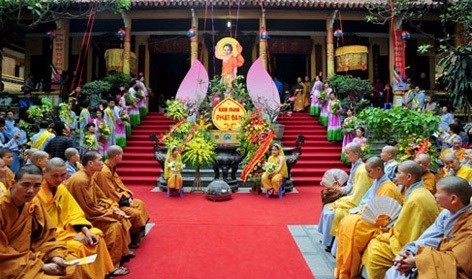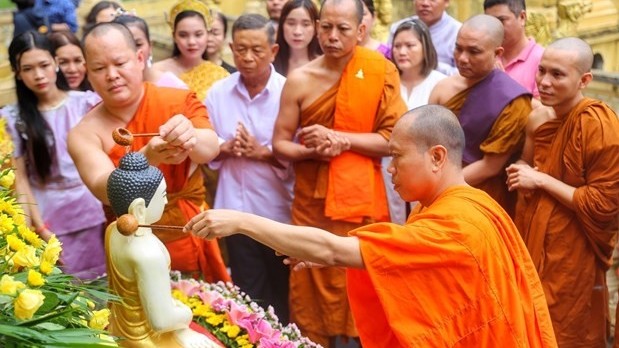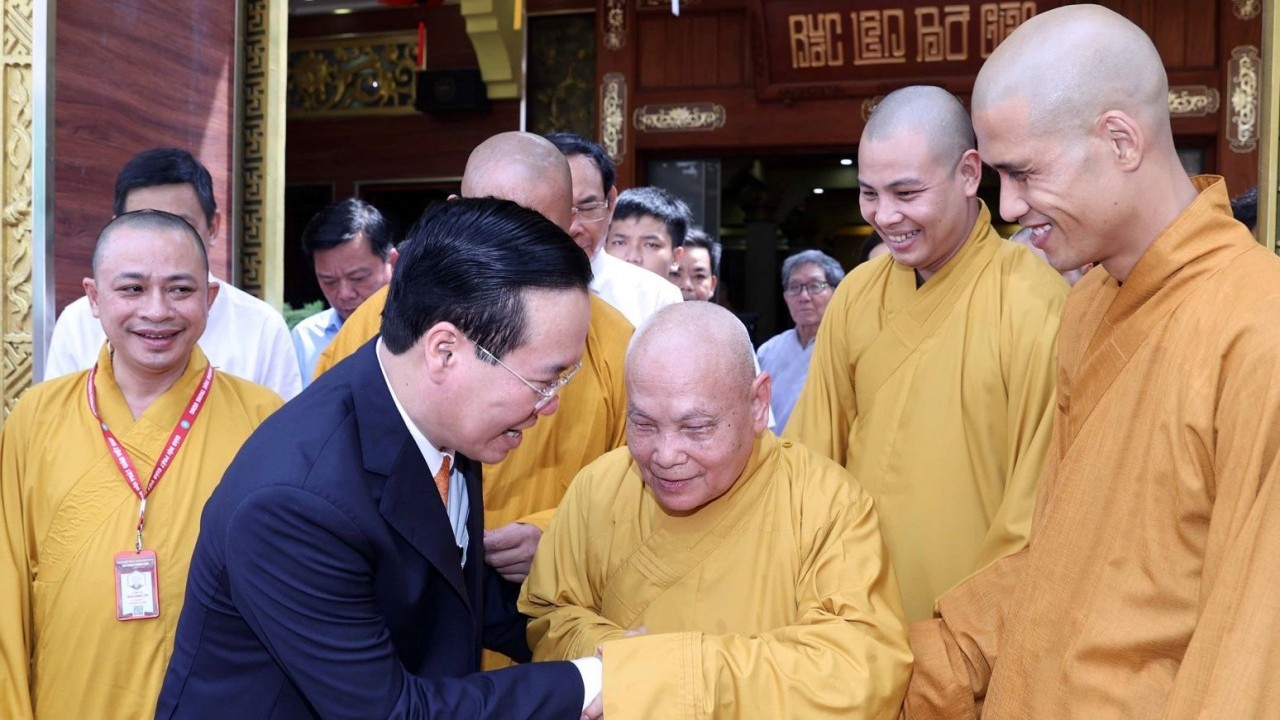
Party, State facilitate practice of religions in Vietnam
Latest
 |
| Vietnamese Party, State facilitate practice of religions: The country counts 62 religious training establishments in 36 cities and provinces. (Photo: VNA) |
Apart from facilitating the handover of land to the construction of worship places, the Party and State have also paid attention to other religious activities such as operation registration, and the ordainment and training of religious dignitaries and assistants.
The development of religious organisations requires intensive training for religious dignitaries and assistants. Therefore, many religions have been allowed to establish training institutions and open training courses.
The country counts 62 religious training establishments in 36 cities and provinces, including 11 grand seminaries and academies of the Catholic Church of Vietnam; four institutions, 34 schools and eight colleges on Buddhism run by the Vietnam Buddhist Sangha; among others in various localities.
Since the Law on Belief and Religion came into force in 2018, the Catholic Church of Vietnam has built two religious training establishments. Many of its institutions have been licensed to provide master’s and doctoral training.
The Cao Dai Academy has established with the Ante Creation (Cao Dai Tien Thien) Church as the legal representative. The establishment, whose opening contents were approved by the Ministry of Home Affairs, has admitted hundreds of people, helping improve knowledge for Cao Dai dignitaries.
Along with general religious knowledge, the training courses for Cao Dai dignitaries and assistants have also popularised the State’s law and regulations on religious activities.
Meanwhile, the Prime Minister on August 8, 2006, approved the formation of the Khmer Theravada Buddhist Institute, whose first course was officially opened nearly one year later, said head of the institute Most Venerable Dao Nhu, who is also Vice President of the VBS’s Executive Council.
Other legitimate needs of religious organisations have also received due attention from the Party and State, from ordainment and operation registration to daily activities of dignitaries and assistants.
According to the Government Committee for Religious Affairs, the State has recognised and licensed 43 organisations belonging to 16 religions with about 26.5 million followers, making up 27% of the national population, of which over 54,000 are dignitaries and more than 135,000 are assistants, along with nearly 30,000 worship places.
The ordainment, appointment, election, nomination and transfer of dignitaries, assistants, monks and nuns of religious organisations have been conducted smoothly thanks to the instruction of relevant consulting agencies.
During the three years of implementation of the Law on Law on Belief and Religion, from 2018 to 2021, a total of 5,572 people in 62 out of the country's 63 cities and provinces were ordained as dignitaries, and 12,421 others appointed as assistants.
The number of licensed religious sites and groups also increased from 2,691 before 2018 to 1,112 after the law came effective.
Concentrated religious activities of foreigners in Vietnam have also been ensured, with 67 sites and groups gathering hundreds of foreign nationals legally residing in the country, mostly in Ho Chi Minh City (41) and Hanoi (13). The religious followers come from different countries like the Republic of Korea (RoK), the Philippines, Singapore, Malaysia, the US, and France.
Chairman of the Government Committee for Religious Affairs Vu Hoai Bac quoted the law as saying that religious organisations are allowed to publish religious books and other publications. To exercise this right, many religious organisations and individuals have registered the publication.
Statistics show that the Religious Publishing House issues 2,027 publications with over 7 million copies between 2017 and 2021, many of which have been translated into English, French and ethnic languages.
As many as 15 newspapers and magazines of religious organisations are operating in Vietnam. Most of the religious organisations have launched their own websites. In the first half of this year, all-level authorities have approved the issuance for 140 publications, with over 684,000 copies.

















